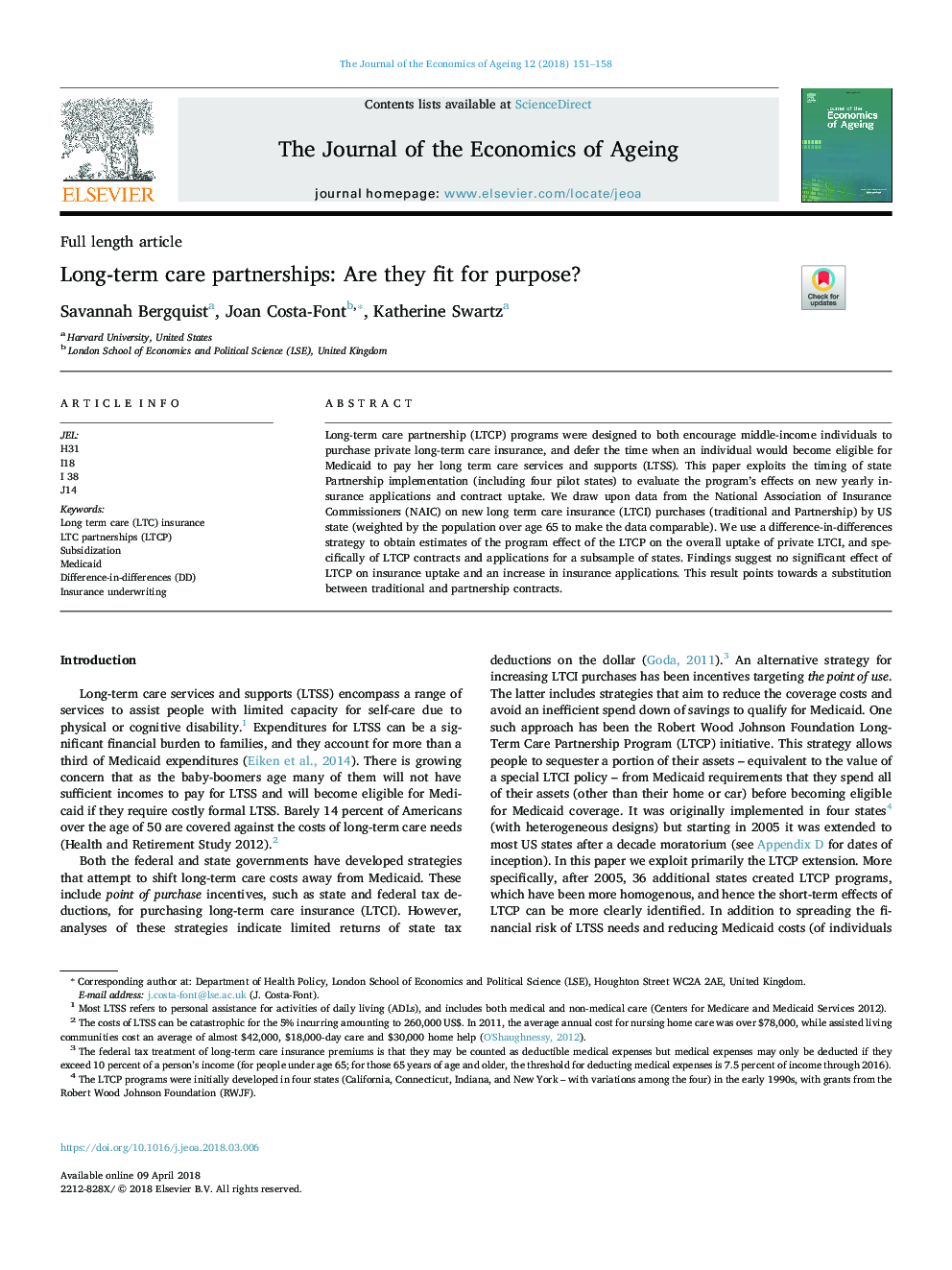| Article ID | Journal | Published Year | Pages | File Type |
|---|---|---|---|---|
| 7359954 | The Journal of the Economics of Ageing | 2018 | 8 Pages |
Abstract
Long-term care partnership (LTCP) programs were designed to both encourage middle-income individuals to purchase private long-term care insurance, and defer the time when an individual would become eligible for Medicaid to pay her long term care services and supports (LTSS). This paper exploits the timing of state Partnership implementation (including four pilot states) to evaluate the program's effects on new yearly insurance applications and contract uptake. We draw upon data from the National Association of Insurance Commissioners (NAIC) on new long term care insurance (LTCI) purchases (traditional and Partnership) by US state (weighted by the population over age 65 to make the data comparable). We use a difference-in-differences strategy to obtain estimates of the program effect of the LTCP on the overall uptake of private LTCI, and specifically of LTCP contracts and applications for a subsample of states. Findings suggest no significant effect of LTCP on insurance uptake and an increase in insurance applications. This result points towards a substitution between traditional and partnership contracts.
Keywords
Related Topics
Social Sciences and Humanities
Economics, Econometrics and Finance
Economics and Econometrics
Authors
Savannah Bergquist, Joan Costa-Font, Katherine Swartz,
